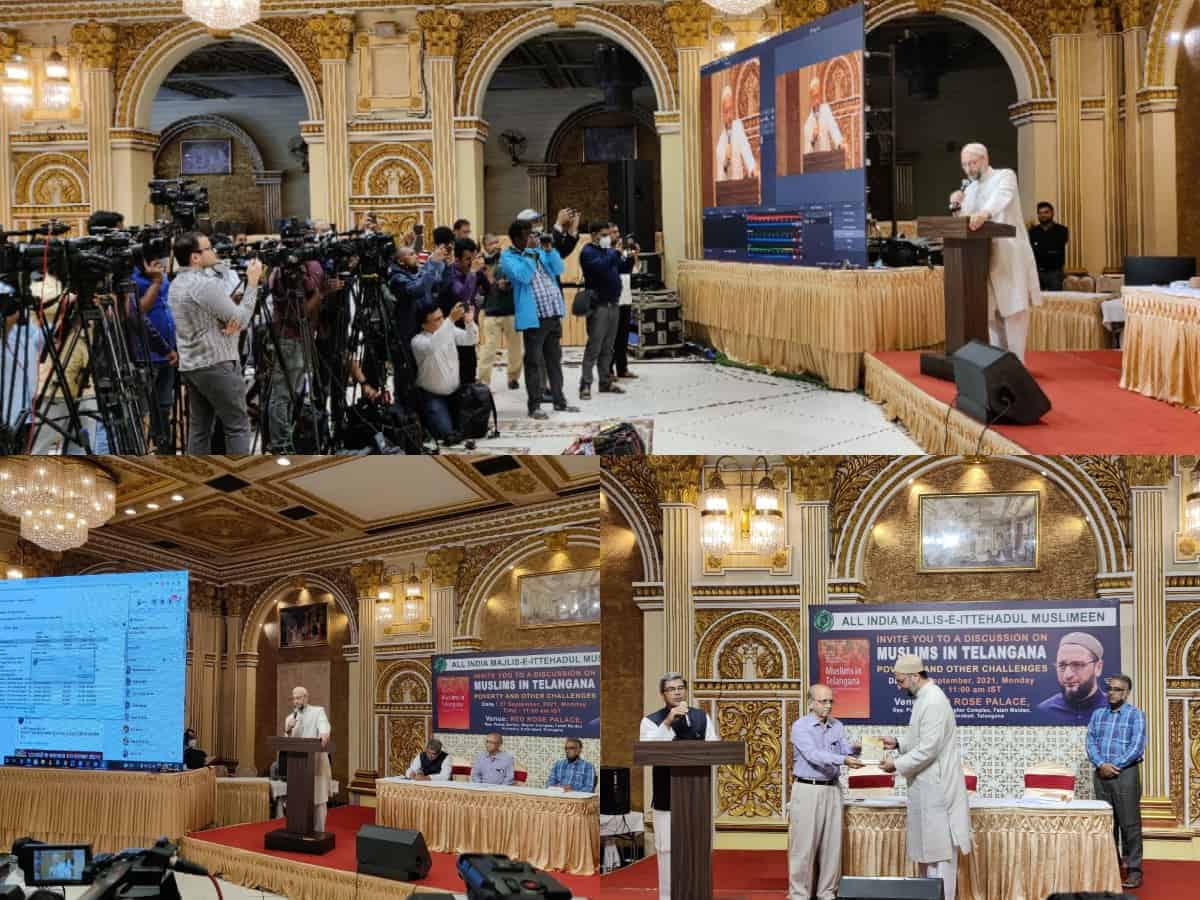Hyderabad: Muslims in Telangana are getting more and more marginalized especially after the COVID-19 pandemic, suggests new data. The community in fact comprises a huge chunk of the poorest 20% population in Telangana, said noted Hyderabad-based economist Amir Ullah Khan.
Khan, who was addressing a symposium titled ‘Muslims in Telangana’ said that the number of Muslims falling into poverty is steadily increasing. Quoting studies from the Sudhir commission report by the Centre for Developmental Policy and Practice (CDPP), Khan said data suggests that Muslims have been getting poorer and weaker economically. Telangana is believed to have around 12.5% Muslims out of its total 4 crore population.
The government of Telangana had released a ‘Report of the Commission of Inquiry on Socio-Economic and Educational Conditions of Muslims’ in 2016. The commission set up to issue the report was led by former IAS officer G. Sudhir who is also the chairman of the research team at CDPP. The commission revealed that the community fares poorly on most human developmental indicators.
Monday’s ‘Muslims in Telangana’ symposium was organised by the All India Majlis e Ittehadul Muslimeen (AIMIM). Hyderabad Lok Sabha member of Parliament (MP) and AIMIM president Asaduddin Owaisi, who also attended it, said, “It is important to read the Sudhir report as data is the new oil,”. Owaisi added that poverty is increasing amongst Telangana’s Muslims and that only 57% have their own property.
“Even though Muslims have a 77% literacy rate, they have the highest dropout rates in higher education,” Owaisi remarked. Apart from economist and research director at CDPP Amir Ullah Khan, Prof. Abdul Shaban from the University of Paris and former IAS officer G. Sudhir spoke on the occasion along with other experts.
Quoting from the Amitabh Kundu committee report (set up by the central government in 2013 to look at the socio-economic and educational status of Muslims after the Sachar report) on the status of Muslims in the country, Owaisi said that the main reason for the increased dropout rates amongst Muslims in higher education is because they don’t have the “financial wherewithal.”
Amitabh Kundu, who led the report, said that post-COVID-19, the level of discrimination against Muslims has increased by two levels.
In comparison to SC, ST, and OBC, Muslims are faring a little bit better than STs, but worse than SC’s and OBCs socio-economically, Prof. Abdul Shaban stated. Further, he added that there’s a lot of landlessness and there’s no ownership of means of production in Muslim communities.
Policy Recommendations
CDPP urged the state government to uplift all disadvantaged groups suffering from poverty and submitted a set of policy recommendations to the K. Chandrasekhar Rao administration. Amir Ullah Khan further recommended that Muslims should be included in the ongoing Dalit Bandhu scheme, as it can lift a vast majority of the Muslim population from endemic poverty and backwardness.
Moreover, Amir Ullah Khan, suggested that as 1% of the Muslim population is in abject poverty, hence, approximately 9000 households are to be considered for the direct benefit transfer scheme.
“If each household is allocated a sum of Rs.10 lakh, the burden on the government of Telangana will amount to Rs.900 crore, equal to 0.8% of the budget,” he added. Amir Ullah Khan said that the direct cash transfer to poor Muslim households as a percentage of the state budget revenue would be around 0.35% of the budget.
Owaisi said that he will talk to the chief minister KCR about this and urge him to take immediate action.

